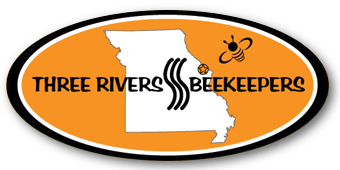by Eugene Makovec
Remember how clueless you were when you got your first package of bees? I sure do. I kept copious notes those first couple of years, as my level of enthusiasm was high but my store of knowledge low. I recently dusted off that old notebook, and I’m not sure whether to classify the work as tragedy or comedy.
I ordered my bees late, received them later, killed my queen (you don’t want to know ― or least I don’t want to tell you), foiled their efforts at supersedure (I thought I was cutting out swarm cells), finally got a replacement and somehow, barely, got that first colony through winter.
One of my problems is I’m just not good at asking for help. Even though beekeepers are almost universally friendly and helpful, and I remain in debt to a couple of local experts for their advice in times of need, I was always reluctant, even embarrassed, to “bother” anyone until the situation was dire.
So I just muddled along, read all I could get my hands on, and tried to apply what I learned to my own situation. But as one old-timer told me early on, “Your bees won’t always read the same books you do.” A couple seasons in, I realized they weren’t even in the same library!
In 2008, shortly after CCD became a media frenzy, Eastern Missouri Beekeepers Association hosted our first beginning beekeeping workshop in years in St. Louis County. The response was incredible, filling the meeting room to its capacity of 150 with dozens more turned away. We ended up with close to 100 new beekeepers that spring, practically doubling our membership.
Now, imagine the difficulty in managing a club in which half your members have no experience. An early effort was made to set up a formal mentoring program, but it quickly fell into disarray. At one early meeting, I was one of a number of experienced members tabbed to head up breakout groups of newbees for a half hour how-do-you-do, where-do-you-live, call-me-for-help session. We had a nice discussion about hive placement, package installation and the like, but I don’t think I ever talked to any of those people again.
Okay, maybe that says more about me than it does about the mentoring program, but suffice it to say that the initiative did not go far, at least not on a formal basis.
But I did end up unofficially mentoring several new beekeepers that year, a couple of whom I’d met at the workshop, one who inherited a swarm I caught in her neighbor’s yard, and others who found me on the membership roster when they needed help. These relationships were very informal, and very much dependent on those individuals calling or emailing with questions in times of need.
This informality has its good and bad points. One woman in particular called me out of the blue a week after receiving her package bees. She was frantic because she couldn’t find her queen, the weather had turned cold, and she feared for the worst. I gave her a little advice and a lot of reassurance, and asked her to keep me posted. I didn’t even get her last name.
After two months of not hearing anything, and fearing that her bees had died and I was to blame, I managed to track her down. Everything turned out fine, she said, and I’m so glad you called, because I really need some advice but I didn’t want to bother you again.
I ended up making a couple of visits to this woman’s house to inspect her bees with her, and later in the summer she and her husband had me over for dinner to thank me for my assistance. We’ve been friends ever since.
Half the battle in these situations is just convincing someone that yes, you really do want to help, and no, you really don’t mind them calling for advice. Most importantly, I made it clear to them at the outset that I was willing to drop by and take a look in person.
Many locals have programs for beginners, even including up-close inspections at club or member apiaries. But while looking through someone else’s bees is very helpful, and more than I got when I started, it’s still no substitute for sorting through your own bees with the help of a veteran.
Looking back on all the troubles I had those first couple of years, it sure would have been nice to have an experienced pair of eyes looking over my shoulder once or twice. Both my bees and I would have been better off as a result.
This article first ran as an editorial in American Bee Journal in April 2019.
by Eugene Makovec
Posted April 5, 2020
